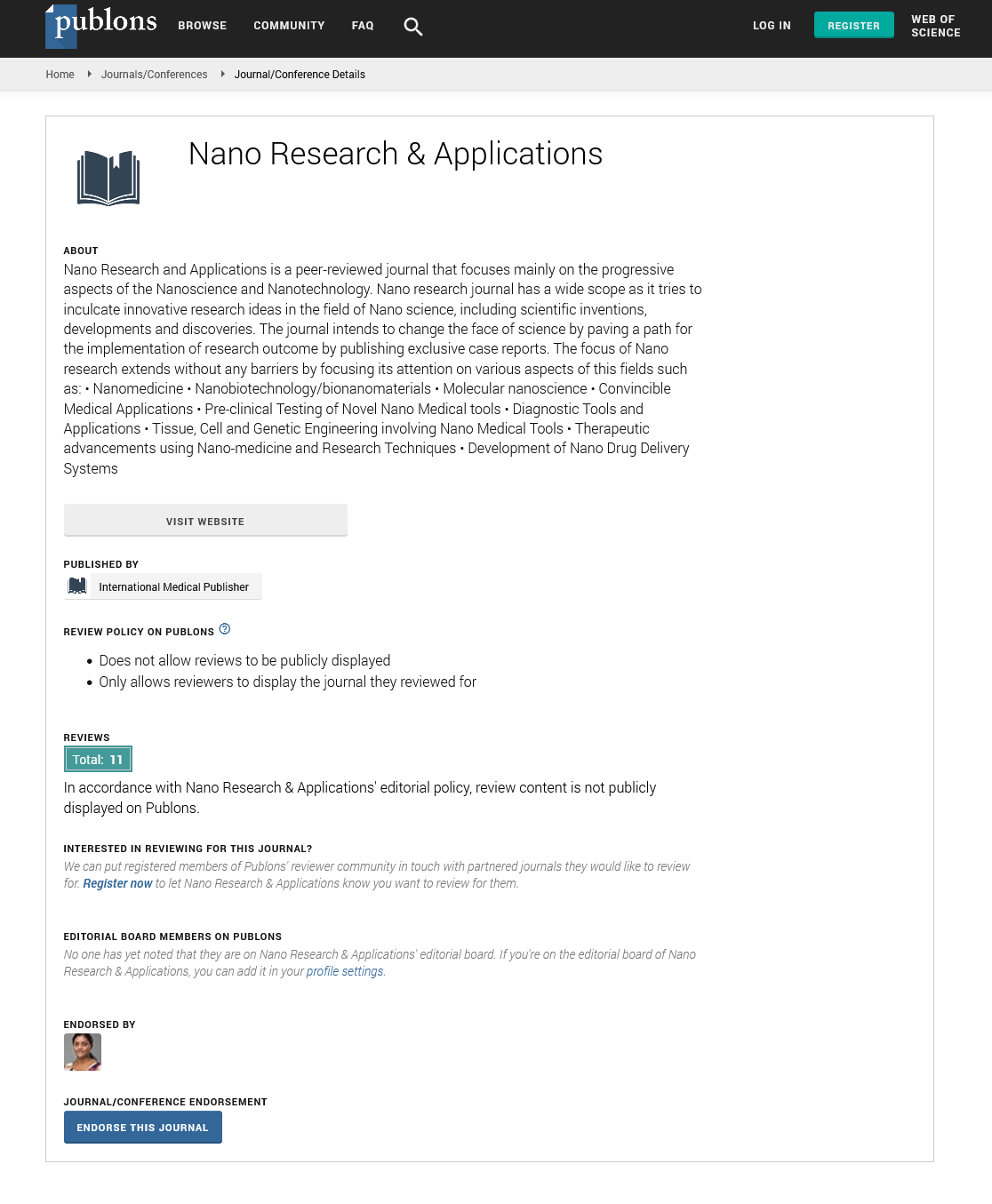ISSN : 2471-9838
Nano Research & Applications
Cryogenic lubri-coolant machining on difficult-to-cut alloys
Joint Event on 26th International Conference on Advanced Nanotechnology & 2nd Edition of International Conference on Materials Technology and Manufacturing Innovations
October 04-05, 2018 Moscow, Russia
Octavio Manuel Pereira
University of the Basque Country, Spain
ScientificTracks Abstracts: Nano Res Appl
DOI: 10.21767/2471-9838-C5-020
Abstract
Nowadays, environmental consciousness is taking relevance in the society. This situation involves some consequences in the manufacturing processes with the aim of improving this philosophy. In the particular case of machining operations, the target is reducing the use of cutting fluids to assist the process. It has to be taken into account that these cutting fluids are based on mineral oils and consequently, its use is environmentally inefficient. Besides, according to several authors, its use represents between 17% and 30% of the total manufacturing costs. Therefore, looking for other lubricooling alternatives is a big challenge to be faced. Among these alternatives, CryoMQL, which combines CO2 cryogenic cooling and MQL, is presented as a full solution reaching a balance between environmental and economic issues. In the figure several performances of its use are shown. Furthermore, this lubricooling technique takes relevance during the machining processes of heat-resistant super alloys. The use of these alloys, known also as difficult-to-cut materials, is growing worldwide in aeronautical industry related to turbomachinery components. In particular, Inconel 718 super alloy is one of the most used materials in this sector to manufacture turbofan critical components due to its high hardness combined with a good tensile strength at high temperatures. However, this material presents some challenges during machining processes leading to high cutting forces, low material removal rates, and other problems that may cause premature tool breakage which needs to be avoided. Therefore, in order to improve milling processes in Inconel 718, in this paper is presented a new lubricooling technique of applying CryoMQL in which CO2 is used as internal tool coolant with the aim of reducing its consumption. The results show that its use improves the current process, not only from an environmental point of view, but also from economic and technical point of view, reaching a technology known as ECO2 milling performance (economy+ecology). Recent Publications 1. González H, Calleja A, Pereira O, Ortega N, López de Lacalle LN and Barton M (2018) Super abrasive machining of integral rotary components using grinding flank tools. Metals 8:24. 2. Pereira O, Martín-Alfonso J.E., Rodríguez A, Calleja A, Fernández-Valdivielso A and López de Lacalle LN (2017) Sustainability analysis of lubricant oils for minimum quantity lubrication based on their tribo-rheological performance. J. of Cleaner Production 164:1419-1429. 3. Pereira O, Rodríguez A, Barreiro J, Fernández-Abia AI and López de Lacalle LN (2017) Nozzle design for combined use of MQL and cryogenic gas in machining. Int. J. of Precision Eng. and Manufacturing-Green Technology 4:87-95. 4. Pereira O, Rodríguez A, Fernández-Abia AI, Barreiro J and López de Lacalle LN (2016) Cryogenic and minimum quantity lubrication for an ecoefficiency turning of AISI 304. J. of Cleaner Production 139:440- 449. 5. Pereira O, Rodríguez A, Fernández-Valdivielso A, Barreiro J, Fernández-Abia AI and López de Lacalle LN (2015) Cryogenic hardturning of ASP23 steel using carbon dioxide. Procedia Engineering 132:486-491.
Biography
Octavio Pereira Industrial engineering with master in cybernetics. Ph.D. from the University of Leon. Researcher in the Department of Mechanical Engineering at the University of the Basque Country since 2013. He is specialised in green cooling-refrigeration techniques, life cycle assessments in machining operations and hard turning processes. He has a book chapter, 9 JCR (>50% Q1) international article, 24 papers in industrial manufacturing magazines, 18 national and international conferences and 3 patents.
E-mail: norberto.lzlacalle@ehu.eus
Google Scholar citation report
Citations : 387
Nano Research & Applications received 387 citations as per Google Scholar report
Nano Research & Applications peer review process verified at publons
Abstracted/Indexed in
- Google Scholar
- China National Knowledge Infrastructure (CNKI)
- Directory of Research Journal Indexing (DRJI)
- WorldCat
- Publons
- Secret Search Engine Labs
- Euro Pub
Open Access Journals
- Aquaculture & Veterinary Science
- Chemistry & Chemical Sciences
- Clinical Sciences
- Engineering
- General Science
- Genetics & Molecular Biology
- Health Care & Nursing
- Immunology & Microbiology
- Materials Science
- Mathematics & Physics
- Medical Sciences
- Neurology & Psychiatry
- Oncology & Cancer Science
- Pharmaceutical Sciences
